Dasar Pembangunan Luar Bandar 2030 (DPLB), which was launched in June 2019, aims to prepare rural communities in facing local and global challenges, and more importantly accelerate transformation in rural Malaysia by 2030.
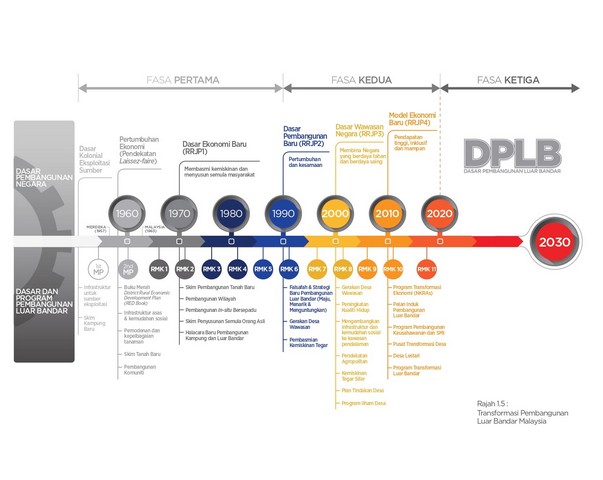
With the vision of “Prosperous, Inclusive, Sustainable and Holistic Rural Areas” (“Luar Bandar Yang Sejahtera, Inklusif, Mampan dan Holistik”), the rural development policy reflects the Malaysian Government’s actions to ensure that the rural population are able to thrive in today’s rapidly changing world through greater access to infrastructure, social facilities and government services comparable to their urban counterparts.
In essence, the policy consists of policy statements and strategies categorised under 10 thrusts; all of which are to be carried out until 2030:
- Competitive & Sustainable Economy – Increasing added value to local resources to generate wealth, entrepreneurship and employment opportunities; supporting economic diversification and building uniqueness of local products; encouraging private investment; grouping economy and multi-functional economic activities.
- Entrepreneurship to Spur Economic Development – Making entrepreneurship a main career choice, establishing a conducive situation to produce rural entrepreneurs and community enterprises as well as assisting in the success of enterprises that are implemented.
- Quality Human Capital – Nurturing quality, viable, sustainable rural human capital capable of meeting future needs through a quality education system.
- Complete & Advanced Infrastructure – Providing quality and sufficient rural infrastructure to support economic development, and creating an attractive and conducive living environment as a place to live, work, invest, and travel.
- Excellent Rural Youth – Empowering rural youth who are high in character, knowledgeable, skilful, patriotic, creative and innovative, and are able to enjoy continuous/sustainable income through entrepreneurship.
- Progressive Rural Women – Empowering rural women who are progressive in all aspects of life, encompassing economy, education, health, social and leadership.
- Prosperous Rural Life – Developing a healthy, safe and prosperous rural community.
- Effective Delivery & Management Systems – Establishing an integrity, efficient and effective rural delivery system and governance; strengthening an integrated coordination and collaboration; empowering village-level governance; and enhancing community involvement in planning, implementing and monitoring rural development.
- Biodiversity & Sustainable Environment – Preserving and conserving biodiversity and environmental sustainability through a sustainable development approach; improving community awareness and responsibility as well as promoting an eco-friendly way of life.
- Housing, Regional Development & Integrated Village Settlements – Enabling home ownership in rural areas; empowering regional development; balancing growth between urban and rural areas, as well as among rural areas; and developing sustainable rural settlements capable of attracting urban residents to migrate to the countryside.
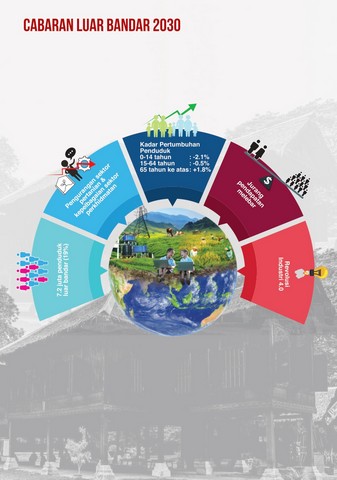
DPLB is also designed to nurture resilient and informed rural communities within the framework towards achieving its vision. From the Government’s perspective, the policy is crucial in developing rural Malaysia in terms of:
- Drafting the continuity of a prosperous, inclusive and sustainable rural development;
- Making rural areas attractive and conducive as a place to live, work and make investments so as to increase migration from the city to the countryside;
- Increasing active involvement of rural communities in mainstream development;
- Bridging the development imbalance gap between urban, rural and regional areas; and
- Improving the preparedness of rural residents in facing challenges of the Fourth Industrial Revolution (4IR) and an increasingly challenging global environment.
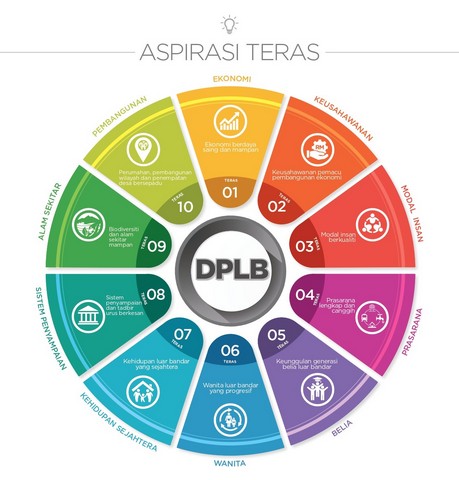
A Shift in Rural Transformation Priorities
Rural development has been a priority in Malaysia since the beginning of its independence, with the Government emphasising the provision of infrastructure, education, training and employment opportunities to spur rural economic growth and enhance the well-being of rural communities.
So far, the country has undergone two major phases of rural development, where several policies and programmes have been drawn up and implemented.
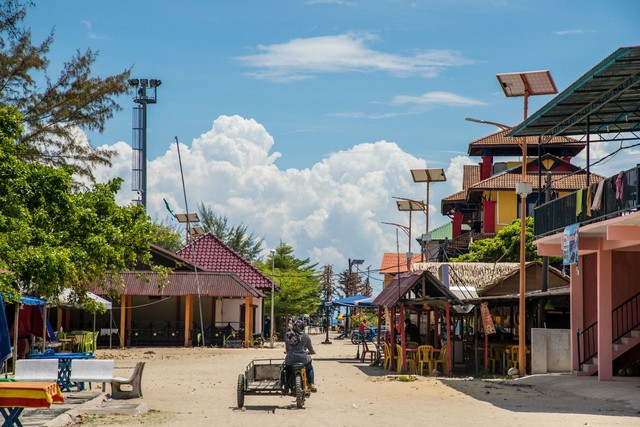
Phase One, which took place from 1957 to 1993, featured key initiatives that stressed the opening of new lands, regional development and in-situ development (Table 1).
It began with the First Rural Development Transformation (Transformasi Pembangunan Luar Bandar Pertama) in 1957, with the goal of expanding physical infrastructure and providing basic facilities extensively to rural residents – setting a solid foundation for rural areas to progress more actively.
The phase also saw the formation of numerous regional development agencies aimed at developing lands and improving the standard of living of rural communities, including the Federal Land Development Authority (FELDA), the Federal Land Consolidation and Rehabilitation Authority (FELCRA) and the Rubber Industry Smallholders Development Authority (RISDA).
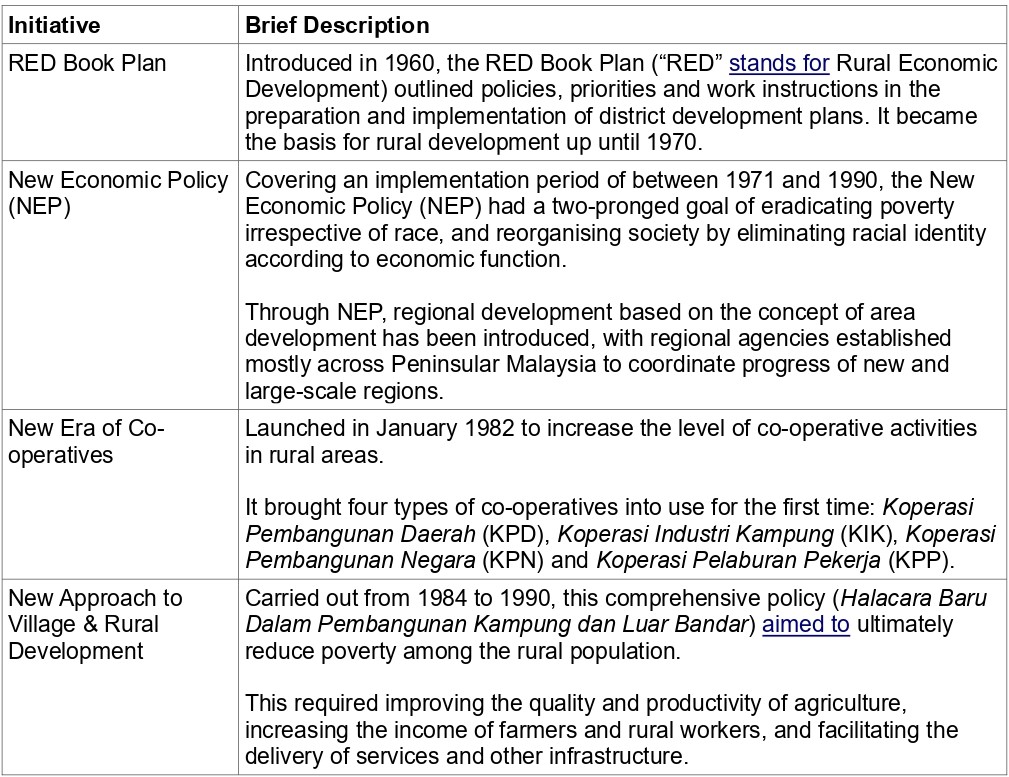
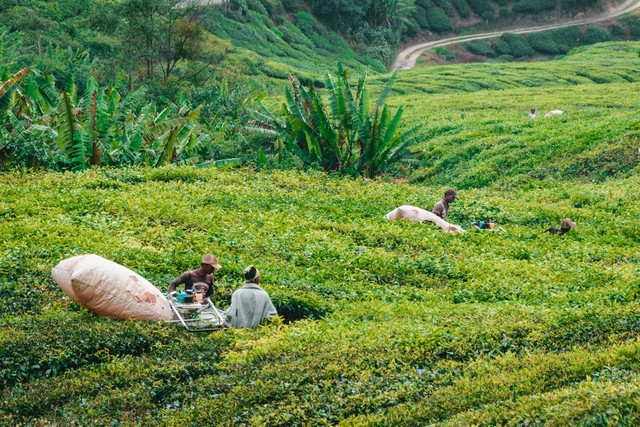
The Second Rural Development Transformation (Transformasi Pembangunan Luar Bandar Kedua) that started in 1994 initiated Phase Two of rural development in Malaysia (1994-2020). The policy was introduced in the early years of Vision 2020 and the National Development Policy, which were adopted in 1991.
Key initiatives in this phase demonstrated the shift from centralised economic development and basic infrastructure to community development, human capital development for rural communities, and the use of modern technology to increase productivity in rural areas (Table 2).
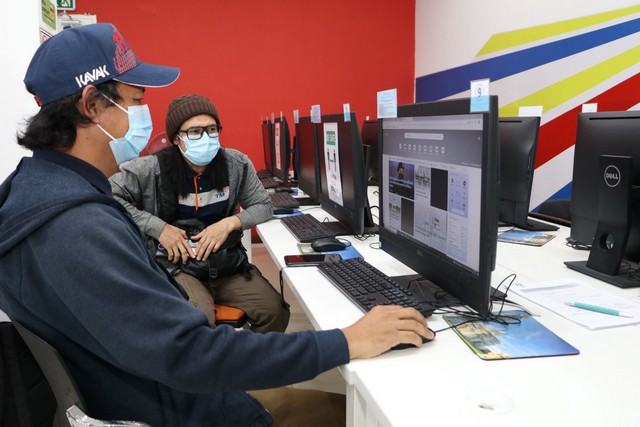
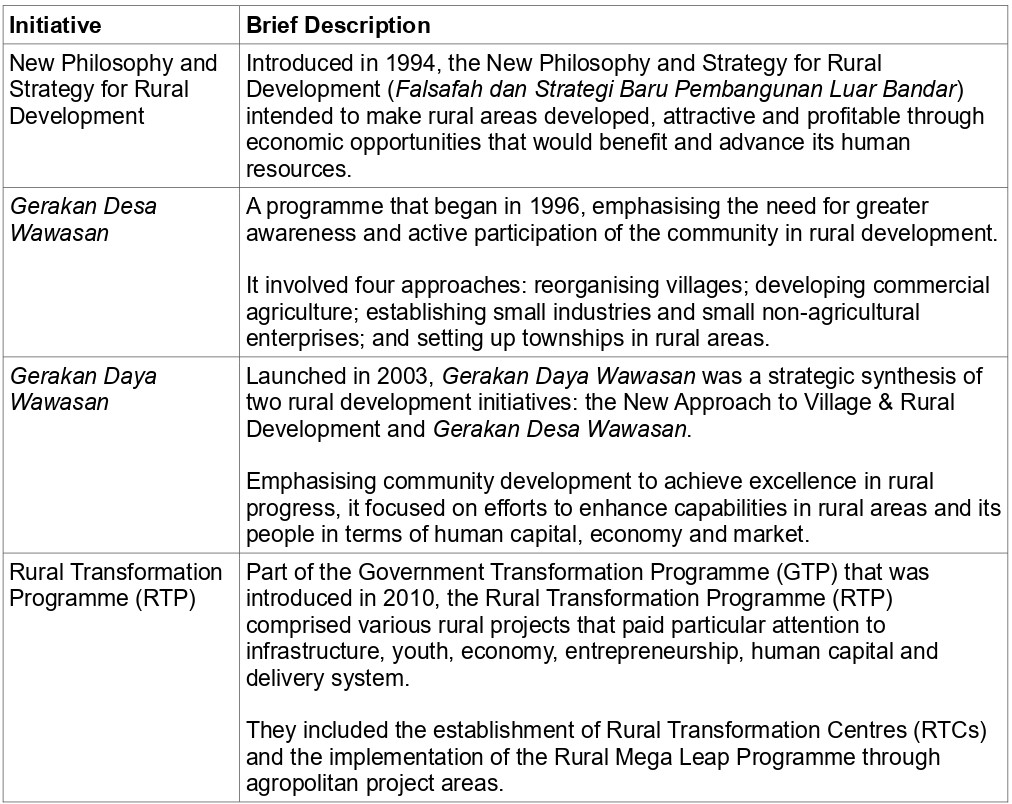
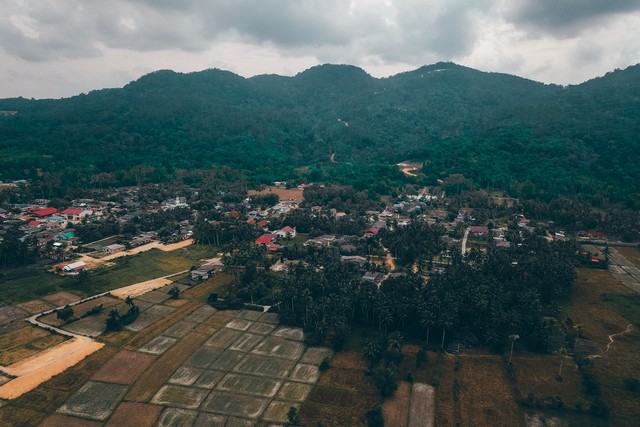
DPLB marks a new phase in Malaysia’s rural development transformation, which sees the importance of sustainability in economic, social, cultural and environmental progress in rural areas.
Formulated to ensure development continuity beyond Vision 2020, it covers two five-year national plans, namely the 12th Malaysia Plan (2021-2025) and the 13th Malaysia Plan (2026-2030).
It also takes account of other national policies such as DPF Desa Negara 2030, and international ones, most notably the Sustainable Development Goals (SDGs) adopted by all United Nations Member States (including Malaysia) as part of the 2030 Agenda for Sustainable Development.
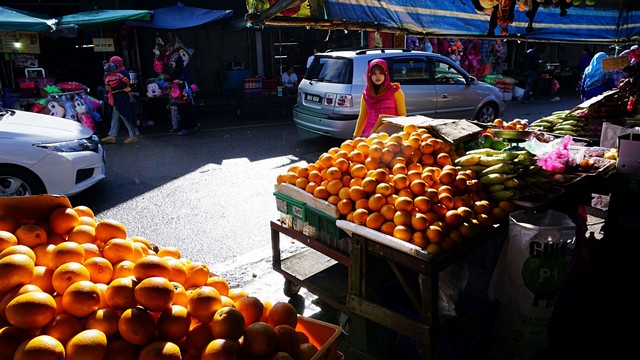
Through DPLB, rural development planning and implementation are expected to be undertaken in a more coordinated, collaborative and committed manner by relevant stakeholders, thereby ensuring the well-being of rural communities – regardless of their race, religion, social status, gender and age – in the long run.
Sources:
https://www.rurallink.gov.my/dasar-pembangunan-luar-bandar-dplb/
https://www.rurallink.gov.my/latar-belakang-pembangunan-luar-bandar/




